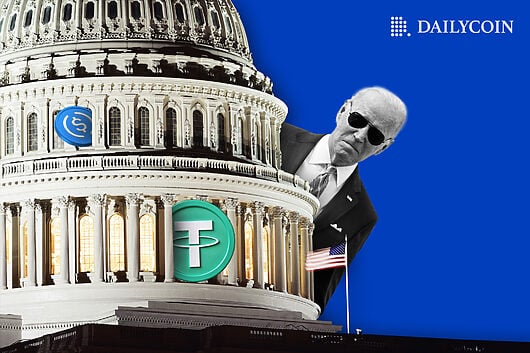Next US Congress to Legislate on Stablecoin Regulation

- Several bills introduced in the Senate and the House of Representatives are expected to be discussed next year.
- Whatever the outcome of the upcoming mid-term elections, the passage of legislation on stablecoins and other digital assets is almost certain.
The United States Congress, which will shortly undergo a change in composition following the mid-term elections on November 8, will have to legislate on a series of matters related to the crypto industry. These include the regulation of stablecoins, a topic which has several bills awaiting discussion and approval.
Following the Report on Stablecoins released by the President’s Task Force on Financial Markets in November of last year, and the catastrophe that followed the collapse of algorithmic stablecoin Terra USD, lawmakers on Capitol Hill have focused on crypto legislation.
Bills Presented
Since then, several bills have been presented for discussion in the Senate and the House of Representatives. In February of this year, New Jersey Congressman Josh Gottheimer introduced the Stablecoin Innovation and Protection Bill of 2022.
The text of the bill states that qualified stablecoins can be issued by a bank or a non-bank issuer. It also defines stablecoins as cryptocurrencies redeemable for US dollars.
Primary oversight over stablecoin issuers would be in the hands of the Office of the Comptroller of the Currency (OCC). The bill also requires the FDIC to develop an Insurance Fund of Rated Stablecoins for redemption payments from non-bank issuers.
In March, Tennessee Sen. Bill Hagerty introduced the Stablecoin Transparency Bill, while Indiana Congressman Trey Hollingsworth introduced a companion bill (HR 7328) in the House.
This bill, which would only apply to fiat-backed stablecoins, requires stablecoin issuers to report reserves to users on their financial balances on a monthly basis.
Additionally, reserves associated with stablecoins must be backed by various non-digital currency-based financial instruments. These include government bonds or securities with a maturity of no more than 12 months, fully collateralized securities repurchase agreements, and dollars or any other fiat currency.
Bill with the Highest Consensus
However, the stablecoin bill that has received the most attention and momentum is the one introduced by Congresswoman Maxine Waters, Chair of the House Financial Services Committee, and Ranking Member for North Carolina, Patrick McHenry.
The proposal of both legislators establishes a series of capital reserve requirements for stablecoin issuers in order to guarantee users that they can recover their capital in the event of insolvency.
One of the most drastic measures contained in this bill is the two-year ban on algorithmic stablecoins, the approval of which would be subject to prior study by the Treasury.
On the Flipside
- This last bill seems to be the one with the best chance of being approved by the next US Congress.
- Its content collects the positions of both parties in the House of Representatives on stablecoins.
Why You Should Care
Regardless of which party emerges strongest in the election on November 8, it is a given that next year stablecoins will be regulated by the US Congress.
You can read other related articles in the following links:
Crypto Industry More Attractive to Investors Due to Regulatory Action
Sam Bankman-Fried Clears the Air on Controversial Crypto Regulatory Framework
Read more: https://dailycoin.com/next-us-congress-to-legislate-on-stablecoin-regulation/
Text source: DailyCoin.com










